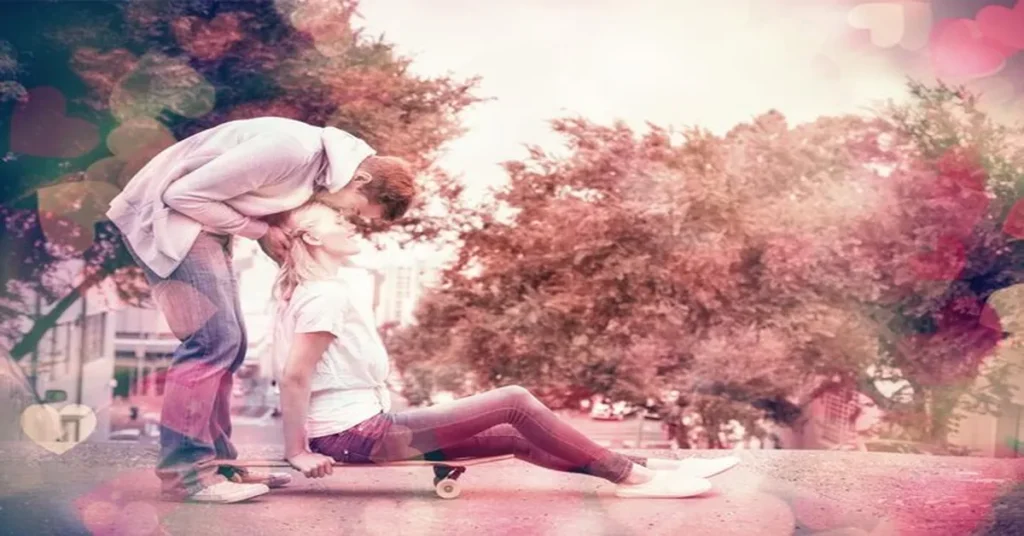Love can be a wild ride, can’t it? One moment you’re floating on cloud nine and the next, you’re grappling with heartbreak. Enter “Runaway,” a song that captures this whirlwind of emotions in its poignant lyrics. Whether it’s Del Shannon’s classic hit or AURORA’s haunting rendition, the essence of escaping emotional turmoil resonates deeply. These lyrics whisper secrets about love—its joys and sorrows—and how sometimes, running away is just what we need to find ourselves again.
So grab your headphones and let’s dive into the lyrical intricacies of “Runaway.” We’ll explore how these verses reveal not only heartache but also an exhilarating sense of freedom. Buckle up as we journey through different interpretations across time while uncovering profound connections between the music and our own experiences with love!
From Heartbreak to Freedom: What ‘Runaway’ Lyrics Reveal About Love
Love can feel like being on a roller coaster. One second you’re soaring high, and the next, you’re plummeting into unknown depths of sorrow. “Runaway” captures this emotional turbulence perfectly. The lyrics act as a mirror reflecting our experiences—heartbreak intertwined with fleeting joy.
Imagine feeling trapped in a relationship that once brought you sunshine but has turned stormy. The urge to escape becomes almost palpable, doesn’t it? The song invites listeners to envision running away from pain, seeking solace somewhere far away where hope still lingers.
But here’s the twist: freedom isn’t just about escaping; it’s also about rediscovery. As we flee from heartbreak, we often stumble upon ourselves again—our passions reignited and dreams revisited. Those moments when you sing along to “Runaway,” something shifts within you; liberation is within reach.
The beauty of these lyrics lies in their relatability. Everyone has felt that tug-of-war between love and longing for independence at some point in life. It resonates deeply across generations, allowing artists like Del Shannon and AURORA to weave their unique tales while staying true to the core message.
Every note strums an emotional chord—a reminder that even amidst despair, there lies potential for growth and transformation. This dynamic interplay between heartache and freedom makes “Runaway” more than just a catchy tune—it evolves into an anthem of self-discovery through pain.
So let those evocative lyrics wash over you as they explore love’s complexities! Each artist adds layers to its meaning while reminding us that sometimes taking flight leads us back home—to ourselves.
Read: Automation with Ms Orchestrator Get Lines Activity Example
Runaway Lyrics Analysis
“Runaway” lyrics are a treasure trove of emotion, capturing the essence of love’s highs and lows. At first glance, they tell a story of fleeing from heartache. But dig deeper, and you’ll uncover layers that resonate with anyone who has loved deeply.
The verses paint a vivid picture of longing and escape. The desire to run away signifies not just pain but also the hope for freedom. It’s that moment when you realize you can’t always stay in situations that hurt you. There’s an undeniable urgency in those lines; it’s almost as if the words themselves are urging listeners to take action against their own heartbreak.
Imagery plays a crucial role here too. You can almost see someone standing at a crossroads—one path leads back to familiar sorrow while the other promises liberation from emotional shackles. This dichotomy encapsulates what many feel during tumultuous relationships.
Melody entwines brilliantly with these themes, enhancing every lyric’s impact. A haunting tune paired with poignant words creates an atmosphere filled with nostalgia and yearning—a perfect blend that invites introspection about personal experiences.
Often repeated phrases serve as mantras for those seeking solace or resolution amidst chaos. They echo sentiments we’ve all felt: “I need to get away.” Such repetition makes them memorable, allowing listeners to internalize this essential truth about love—it isn’t always kind.
Listening closely reveals how vulnerability fosters connection through shared understanding of loss and rebirth in love. These lyrics transcend time; they speak universally across generations, making “Runaway” more than just another song—it becomes part of our collective journey through romance.
Del Shannon’s Influence
Del Shannon burst onto the music scene in 1961 with his iconic hit “Runaway.” His sound was fresh, blending rock and pop with a touch of melancholy that resonated deeply. With his distinct falsetto, he captured the essence of heartbreak like no other.
Shannon’s lyrics painted vivid pictures of love lost, echoing feelings many could relate to. The themes in “Runaway” were revolutionary for its time—exploring vulnerability and emotional turmoil wrapped up in catchy melodies. This combination made it an instant classic.
The song’s haunting organ riff complemented those raw emotions perfectly. It set a tone that would influence countless artists who followed in Shannon’s footsteps. He paved the way for future musicians to delve into deeper emotional storytelling through their songs.
Many artists have cited Shannon as a significant influence on their work. Bands from various genres have drawn inspiration from “Runaway.” They’ve adapted its elements while keeping that heart-wrenching feeling alive.
Even today, Del Shannon’s impact is undeniable. His ability to convey complex emotions through simple yet powerful lyrics inspires new generations of singers and songwriters alike.
As you listen to different versions of “Runaway,” take note of how they capture the spirit Del created over six decades ago—a timeless exploration of love’s highs and lows that continues to resonate across musical landscapes.
AURORA’s Interpretation
AURORA’s rendition of “Runaway” takes listeners on a mesmerizing journey through the tumultuous waves of love and heartbreak. Her ethereal voice captures a raw emotional depth that resonates with anyone who has ever felt lost in their feelings.
With haunting melodies and poignant lyrics, AURORA brings her unique perspective to the song. She channels vulnerability, creating an atmosphere where listeners can almost feel the weight of her emotions. It’s as if she invites us into her world—a realm marked by both sorrow and liberation.
The imagery is striking; when AURORA sings about running away, it feels like escaping from pain rather than fleeing from love itself. This subtle shift changes everything—she transforms despair into hope, reminding us that freedom often comes after heartbreak.
Her interpretation highlights the beauty found within sadness. The delicate balance between joy and grief creates a relatable experience for those navigating relationships’ ups and downs. Each note strikes a chord deep within our hearts, evoking memories we sometimes wish to forget but ultimately shape who we are.
AURORA infuses elements of nature into her performance too, creating vivid landscapes filled with wonderment. You can practically see yourself dancing under starlit skies while embracing your own ghosts—an invitation that is impossible to resist.
In essence, AURORA’s version breathes new life into “Runaway.” It showcases how artists can reinterpret familiar narratives while maintaining their soulfulness and authenticity in exploring complex emotions related to love.
Read: Reimagining Modern Healthcare: The CumClinic Difference
Connection Between Lyrics and Love
Love is a complicated tapestry, woven with threads of joy, pain, and everything in between. The lyrics of “Runaway” encapsulate this beautifully. They take us on an emotional journey where heartbreak can lead to newfound freedom.
When we listen closely, it’s clear that these lyrics reflect the highs and lows of relationships. They resonate with anyone who has loved deeply yet faced disappointment. It’s like a mirror reflecting our own experiences back at us.
The desire to escape from heartache often coexists with the yearning for connection. This duality creates a tug-of-war within us. Do we run away from love when it hurts? Or do we stay put and weather the storm?
A recurring theme in “Runaway” is longing—both for freedom and acceptance. These sentiments hit home because they remind us that love isn’t always sunshine and roses; sometimes it’s shadowed by doubt or fear.
Different interpretations bring fresh perspectives as well. Artists put their own spin on this timeless message about love lost and found again. Whether they focus on liberation or grief, each rendition adds depth to the original sentiment.
Listeners connect through shared emotions—a universal experience wrapped up in melodic storytelling. That’s what makes songs like “Runaway” so powerful: they transform individual stories into collective feelings that everyone can relate to.
Impact of ‘Runaway’ Across Different Artists
The song “Runaway” has left an indelible mark on the music world, inspiring countless artists across genres. From pop to rock and even electronic, its influence is as far-reaching as it is profound.
Take Bon Jovi’s take on the theme. Their powerful ballad captures the essence of yearning and escape in a way that resonates deeply with fans. The raw emotion echoes Del Shannon’s original while adding a modern flare that keeps listeners hooked.
Then there’s AURORA, who adds her ethereal voice to the mix. Her version transforms “Runaway” into a haunting anthem of liberation. It shows how versatile this classic can be when filtered through different artistic lenses.
Even hip-hop artists have embraced its themes. Rappers often weave snippets or references into their lyrics, connecting their narratives of love and loss back to those poignant lines about running away from heartache.
Each interpretation brings something unique but holds onto the core sentiment: searching for freedom amidst emotional chaos. This universality speaks volumes about love’s complexity.
From indie covers to chart-topping hits, “Runaway” remains relevant decades after its inception. Each artist reinvents it while staying true to what makes these lyrics so compelling—an exploration of heartbreak intertwined with hope for something better ahead.
Conclusion
The journey through the lyrics of “Runaway” is nothing short of fascinating. Each line captures a spectrum of emotions that resonate deeply with listeners. Heartbreak, longing, and ultimately freedom are beautifully woven into this narrative.
Artists such as Del Shannon first introduced these themes, setting the stage for generations to explore love’s complexities. His influence echoes in every rendition that follows, reminding us how timeless these sentiments truly are.
AURORA brings her unique perspective to the table. She transforms classic heartbreak into an ethereal experience, pulling listeners along on a dreamy adventure. Her interpretation sparks new conversations about what it means to escape from pain and embrace liberation.
This connection between the lyrics and our experiences with love creates a sense of community among fans. We all relate to those moments when we feel compelled to run away—whether physically or emotionally—from heartache or disappointment.
Various artists have taken up this mantle over time, each adding their own spin on “Runaway.” The song has transcended its original era, becoming a canvas for diverse expressions of love lost and found.
As we reflect on this rich tapestry within “Runaway,” it’s clear just how powerful music can be in articulating feelings we often struggle to express ourselves. It serves not only as entertainment but also as catharsis—a reminder that freedom often lies just beyond our fears and heartbreaks.
FAQs
Love can be a wild ride, filled with twists and turns. The ‘Runaway’ lyrics reflect this journey from heartbreak to freedom. They remind us of the highs and lows that come with love, encouraging listeners to embrace their emotions.
Here are five frequently asked questions about the song:
What do the ‘Runaway’ lyrics mean?
The lyrics explore themes of yearning and escape. They capture feelings of wanting to break free from emotional constraints while also acknowledging deep connections.
Who wrote the original ‘Runaway’?
Del Shannon penned this timeless classic in 1961. His unique sound laid a strong foundation for future interpretations by various artists.
How has AURORA interpreted ‘Runaway’?
AURORA’s rendition brings an ethereal quality to the song. She emphasizes vulnerability and resilience, making it resonate with a new audience while respecting its roots.
Why is ‘Runaway’ significant in music history?
This track marked a shift in pop music, blending rock elements with poignant storytelling. Its influence spans decades, inspiring countless musicians across genres.
Are there modern covers worth listening to?
Many artists have covered ‘Runaway,’ each adding their flavor. Check out renditions by AURORA or even recent takes on social media platforms; they often breathe fresh life into classic tunes!
With its profound interpretation of love’s complexities, ‘Runaway’ continues to inspire both old fans and newcomers alike—reminding us why we keep coming back for more.







